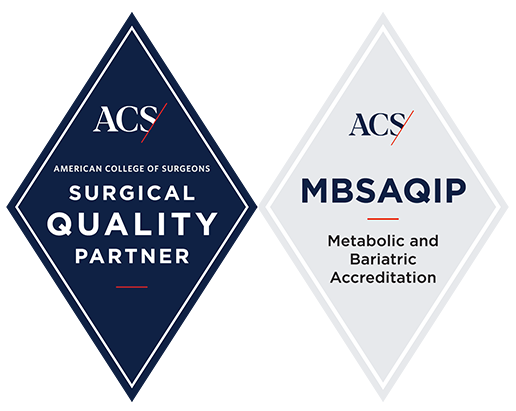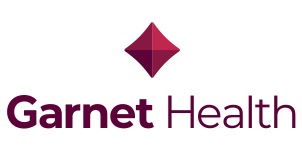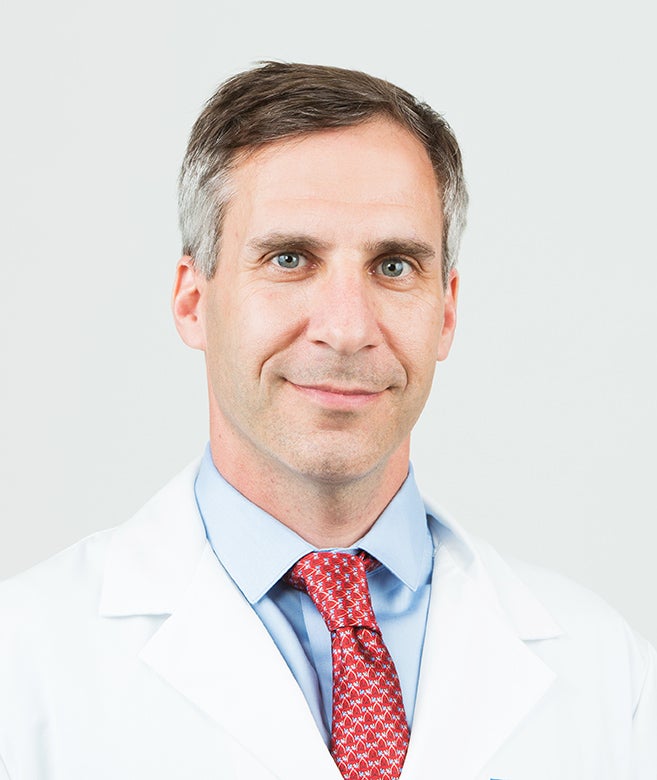Body
We have all seen the commercials. The jingles have ear wormed their way into our everyday lives—the singing, dancing, happy people all lowering their A1C and losing weight, using drugs like Trulicity®, Rybelsus® and Ozempic® to manage their Type 2 diabetes. According to the Centers for Disease Control and Prevention (CDC), of the 37 million Americans (about one in 10) who have diabetes, approximately 90% to 95% have Type 2 diabetes, a chronic condition that requires careful management, often including lifestyle changes, diet, exercise and medication.
Among the various treatment options available, medications known as GLP-1 agonists have gained significant attention, due to their potential to help with both blood sugar control and weight loss. But increased use of these medications for weight loss alone is causing a shortage, putting people with Type 2 diabetes at risk.
What Are GLP-1 Agonists, and How Do They Work?
People with Type 2 diabetes usually experience a decrease in the production of important hormones. One is insulin, which helps regulate blood sugar levels. Others are called incretins, which are naturally found in the body and include gastric inhibitory peptide (GIP) and glucagon-like peptide-1 (GLP-1) receptor agonists. When working properly, incretins tell the pancreas to put out insulin, which is then released into the bloodstream, telling surrounding cells to convert sugar in the blood to energy.
Incretin-based therapies mimic the action of the naturally occurring GLP-1 hormones in the body and have been used to treat Type 2 diabetes for 17 years.
GLP-1 agonist medications primarily work in four ways:
- Slow down stomach emptying. GLP-1 medications help keep food in the stomach longer, making you feel full sooner and allowing for better food absorption.
- Reduce the amount of sugar produced by the liver. This helps keep blood sugar levels stable between meals.
- Increase the release of insulin from the pancreas. Another way blood sugar levels remain stable between meals is through the release of insulin when food is eaten, which enables sugar from the meal to be used for energy.
- Promote the feeling of being full. Receptors in the brain receive a signal telling the body to stop eating.
The Benefits of GLP-1 Agonists for Type 2 Diabetes
When GLP-1 medications are used in addition to healthy eating and physical activity, they can offer many benefits:
- Improved Blood Sugar Control. By promoting insulin release and reducing glucagon secretion, GLP-1 agonists help the body maintain more stable blood sugar levels.
- Weight Loss. GLP-1 agonists have appetite-reducing effects that can lead to substantial weight loss, which is beneficial for individuals with Type 2 diabetes, since obesity is a significant risk factor for the condition.
- Cardiovascular Benefits. Some GLP-1 agonists have shown cardiovascular benefits, including a 22% reduction in the risk of heart attacks and strokes, which are common complications of uncontrolled diabetes.
Weighing the Weight-Loss Benefits of GLP-1 Agonists
GLP-1 medications are undoubtedly a game changer for managing Type 2 diabetes. But as more people use these drugs strictly for weight loss, the side effects cannot be ignored:
- Shortage and Accessibility. The surge in demand for GLP-1 agonists for weight loss has led to shortages and increased costs. People who genuinely need these drugs for glycemic control may face difficulties accessing them, which puts them at risk and can negate the positive gains made in controlling their disease.
- Inadequate Monitoring. Using GLP-1 agonists for weight loss without proper medical supervision can lead to unmonitored blood sugar levels. This can put individuals with Type 2 diabetes at risk of hypoglycemia, a potentially dangerous condition characterized by low blood sugar levels.
- Potential Side Effects. Like any medication, GLP-1 agonists have side effects, including nausea, vomiting and diarrhea. More serious side effects, such as pancreatitis and potential for thyroid cancer, are rare. Using GLP-1 agonists without proper medical guidance can lead to an increased risk of these adverse effects.
Balancing the Benefits and Risks
While GLP-1 agonists are valuable tools in the management of Type 2 diabetes, they are not the magic bullet for weight loss we’d like them to be. They are designed to be used in tandem with the tried-and-true tenets of living a healthy lifestyle and preventing diabetes: eating healthy foods and exercising regularly.
It is crucial for individuals to use these medications under the guidance of a healthcare professional, and for their intended purpose: managing diabetes. Always consult with a healthcare provider to determine the most appropriate treatment plan for your specific health needs—and help ensure that those with Type 2 diabetes can benefit from these valuable medications without unnecessary risks.
Body
 MIDDLETOWN, NY (Oct. 24, 2023) — Garnet Health Medical Center is pleased to announce that its nationally accredited bariatric surgery program has received a new designation from the Metabolic and Bariatric Surgery Accreditation and Quality Improvement Program (MBSAQIP), a joint quality program of the American College of Surgeons (ACS) and the American Society for Metabolic and Bariatric Surgery (ASMBS).
MIDDLETOWN, NY (Oct. 24, 2023) — Garnet Health Medical Center is pleased to announce that its nationally accredited bariatric surgery program has received a new designation from the Metabolic and Bariatric Surgery Accreditation and Quality Improvement Program (MBSAQIP), a joint quality program of the American College of Surgeons (ACS) and the American Society for Metabolic and Bariatric Surgery (ASMBS).
MBSAQIP is a comprehensive, nationwide surgical-quality program aimed at ensuring safe and effective metabolic and bariatric surgery. Surgical outcomes focus on weight loss and the treatment of obesity-related diseases, including diabetes and sleep apnea, as well as others. Research shows that accredited centers experience fewer complications and better outcomes than nonaccredited facilities.
“At Garnet Health, we are committed to the highest standards of surgical care,” said Jonathan Schiller, President and CEO, Garnet Health. “This national designation recognizes our bariatric team for their high-quality care and exemplary experience, and it reflects our proven record of adhering to the most rigorous standards in surgical quality—to minimize complications, improve outcomes and save lives.”
As an MBSAQIP-accredited hospital, Garnet Health Medical Center also becomes an ACS Surgical Quality Partner, signifying the hospital’s dedication to consistently improving procedures and approaches, while maintaining a critical eye on process at every step.
“The Surgical Quality Partner designation lets our patients know we are dedicated to quality and relentless self-improvement,” said Janet Klein, MS, RDN, CDN, CDCES, Program Director, Garnet Health Medical Center Bariatric Surgery. “Patients have always trusted that the care they receive at Garnet Health adheres to the most rigorous standards in surgical quality. It’s quite gratifying to have the dedication, compassion and excellence of our team be recognized with this new designation by the ACS.”
For more information about Garnet Health and their bariatric program, visit garnethealth.org/bariatrics.
About Garnet Health Medical Center
Garnet Health Medical Center is a state-of-the-art, 383-bed medical center that combines high-tech healthcare with a patient-centered approach, in a beautiful and welcoming healing environment. Garnet Health Medical Center is accredited by DNV GL Healthcare. It was named by Healthgrades as one of the 100 best hospitals nationally for cardiac intervention and general surgery, and was a recipient of the Healthgrades Patient Safety Excellence Award™.
Garnet Health Medical Center was named by U.S. News & World Report as a Best Regional Hospital in the Poughkeepsie-Newburgh Metropolitan Service Area and high performing in seven types of care for 2021-22. Garnet Health Medical Center is also a designated Magnet® hospital, recognized for excellence in nursing, and a recipient of the Get With The Guidelines Stroke Gold Plus Quality Achievement Award with Target: Stroke Honor Roll Elite.
Garnet Health Medical Center is an academic affiliate of the Touro College of Osteopathic Medicine. It is also a member of Garnet Health, the corporate parent of Garnet Health Medical Center, Garnet Health Medical Center – Catskills, Garnet Health Doctors, Garnet Health Urgent Care, Garnet Health Foundation and Garnet Health Foundation – Catskills. To learn more about Garnet Health Medical Center, visit garnethealth.org.
Tags:
Body
 MIDDLETOWN, NY (October 17, 2023) - Garnet Health is pleased to announce that Anjana Poonthota, MD, MPH, MBA, FAAP, Garnet Health Doctors Pediatric Hospitalist, has been appointed by the Orange County legislature to the Board of Health of Orange County.
MIDDLETOWN, NY (October 17, 2023) - Garnet Health is pleased to announce that Anjana Poonthota, MD, MPH, MBA, FAAP, Garnet Health Doctors Pediatric Hospitalist, has been appointed by the Orange County legislature to the Board of Health of Orange County.
Dr. Poonthota serves as Garnet Health’s Chair, Department of Pediatrics; Medical Director, Women and Children’s Services; Director, Employee Wellness; and Chair, Resident Wellness.
The Board of Health considers matters relating to the preservation and improvement of public health within Orange County and can make recommendations to the commissioner of the Health Department.
“We at the Department of Health look forward to working with Dr. Poonthota and are eager to learn from her broad expertise and years of experience serving the Orange County community,” said Orange County Department of Health Commissioner Alicia Pointer, DO, MPH, FAAP.
New York State public health law requires boards of health to have seven members, with at least three of them being physicians licensed to practice medicine in New York. The members of the Orange County Board of Health must be residents of Orange County.
Dr. Poonthota received her medical degree from Guntur Medical College, NTR University of Health Services in India, and completed her pediatrics residency at Albany Medical Center in Albany, New York. She holds a master’s degree in public health from the School of Public Health, SUNY Albany, as well as in business administration from University of Massachusetts Amherst.
For more information about Garnet Health, visit careers.garnethealth.org.
About Garnet Health
Garnet Health is a New York State, not-for-profit corporation headquartered in Middletown, New York, approximately 60 miles northwest of New York City. It is the corporate parent of Garnet Health Medical Center, Garnet Health Medical Center – Catskills, Garnet Health Doctors, Garnet Health Urgent Care, Garnet Health Foundation and Garnet Health Foundation – Catskills. Garnet Health is dedicated to developing specialty services, medical programs and needed healthcare services that allow residents to remain close to home to receive quality care.
Providing healthcare to approximately 500,000 residents in Orange, Sullivan and Ulster counties, Garnet Health was designed to improve the quality, stability and efficiency of healthcare services in the mid-Hudson and Catskills region. Garnet Health provides the services of more than 4,000 employed professionals and over 850 medical staff members. An academic affiliate of the Touro College of Osteopathic Medicine, Garnet Health retains compassionate professionals who continually strive toward the hospital’s mission to improve the health of our community by providing exceptional healthcare. To learn more about Garnet Health, visit garnethealth.org.
Body
 Written By: Janet L. Klein, MS, RDN, CDN, CDCES
Written By: Janet L. Klein, MS, RDN, CDN, CDCES
Bariatric surgery is a life-changing decision that can lead to significant weight loss and improved health. However, it’s important to understand that surgery alone is not a magic solution. Exercise plays a crucial role in achieving and maintaining a healthy weight after bariatric surgery. Let’s explore exercise basics both before and after bariatric surgery, as well as the topic of plastic surgery to remove loose skin, a common concern for many post-surgery patients.
Exercise Before Bariatric Surgery
- Preparation is Key: Before undergoing bariatric surgery, it’s essential to start preparing your body for the journey ahead. This includes incorporating exercise into your daily routine. Consult with your healthcare team to determine a suitable exercise plan tailored to your current fitness level.
- Low-Impact Activities: Focus on low-impact exercises like walking, swimming, or stationary cycling. These activities can help improve cardiovascular fitness and stamina while minimizing stress on your joints.
- Strength Training: Building muscle can aid in preserving lean muscle mass during weight loss. Simple bodyweight exercises or resistance band workouts can be effective.
- Flexibility Training: Stretching exercises can increase flexibility and reduce the risk of injury. Consider activities like yoga or Pilates to improve flexibility.
Exercise After Bariatric Surgery
- Post-Surgery Guidelines: Follow your bariatric surgeon’s instructions carefully regarding when to start exercising after bariatric surgery. Typically, patients can gradually resume physical activity a few weeks after the procedure. Walking will begin as soon as a few hours post-operatively.
- Start Slowly: Begin with gentle exercises such as short walks and light stretching. Listen to your body and progress at a pace that feels comfortable.
- Build Consistency: Consistency is key to long-term success. Aim for at least 150 minutes of moderate-intensity aerobic activity per week, as recommended by health guidelines.
- Strength Training: Incorporate strength training to help tone and strengthen your muscles. This can also assist in preventing loose skin by filling out some of the space left by lost fat.
Plastic Surgery for Loose Skin
Loose skin is a common concern after significant weight loss following bariatric surgery. While exercise and a healthy lifestyle can help, sometimes plastic surgery is necessary to remove excess skin that cannot be resolved through natural means. Here are some key points to consider:
- Consultation: Consult with a board-certified plastic surgeon who specializes in post-bariatric body contouring. They can assess your specific needs and provide guidance on the most appropriate procedures.
- Types of Surgery: Common procedures for excess skin removal include:
- Panniculectomy (removal of the “apron” or skin hanging in front of the stomach)
- Abdominoplasty (tummy tuck)
- Arm lift
- Thigh lift
- Breast Lift
Your plastic surgeon will recommend the best options for your unique situation.
- Timing: It’s important to wait until your weight has stabilized post-surgery before considering plastic surgery for loose skin. Surgeons recommend waiting 12-18 months before your first plastic surgery consultation.
- Recovery: Understand that the recovery process can vary depending on the procedures performed. Follow your plastic surgeon’s post-operative instructions diligently to ensure a smooth recovery.
Conclusion
Exercise is a critical component of the bariatric surgery journey, both before and after the procedure. By following a well-structured exercise plan and considering plastic surgery options for loose skin when appropriate, individuals can achieve their weight loss goals and enjoy improved health and confidence on their path to recovery. Always consult with your healthcare team for personalized guidance on exercise and post-bariatric surgery care.
Note: For additional tips and information on exercise and plastic surgery after bariatric surgery see previous blog posts:
- 10/01/22: “Getting Active & Staying Active After Bariatric Surgery.”
- 3/01/22: “Reconstructive Surgery & Fashion for A Changing New Body.”
- 10/04/21: “Getting Active & Staying Active After Bariatric Surgery.”
- 10/02/20: “Easing into Exercise After Bariatric Surgery.”
- 1/01/20: “Enjoying Exercise & Staying Motivated.”
- 10/03/19: “Long-term Weight Loss through Exercise & Bariatric Surgery.”
- 10/02/18: “Exercise After Weight Loss Surgery – 7 things you Need to Know.”
Tags:
Body
In our region, fall is simply vibrant. The crisp, cool air; the trees bursting with colors; and outdoor activities calling to us with promises of pumpkin carving, hot chocolate and hayrides.
At Garnet Health, we want everyone in our community to enjoy these activities and live their best and healthiest life. So, while October is a month of pumpkins, scarecrows and goblins, it’s also Breast Cancer Awareness Month—and time to THINK PINK.
If you’re 25 or older, you should have a clinical breast exam (CBE) every year. Women 40 or older should have a mammogram and a CBE every year.
One in eight women will develop breast cancer. It’s the most common type of cancer diagnosed in women. And in New York and the United States, it is the second-leading cause of cancer death in women.
It’s important to be aware that breast cancer can affect anyone, but those with risk factors may require more frequent checks or mammograms that start at an earlier age. Some common risk factors for breast cancer include:
- Age (risk increases after age 50)
- Family or personal history of cancer
- History of abnormal breast biopsies
The good news is that breast cancer, especially when detected early, can be treated successfully. A mammogram helps detect early signs of breast cancer, making it a vital part of all women’s healthcare routine.
Today, there are more options in terms of technology and medicine than ever before. For example, Garnet Health’s 3D mammography technology can detect breast cancer 40% more accurately, which is critical to successfully treating breast cancer. Other benefits include:
- Detecting breast cancers earlier
- Detecting breast cancers that aren’t found by traditional imaging
- Providing greater accuracy in pinpointing tumor size and location
- Reducing the need for follow-up testing, which helps lessen anxiety, resulting in a better patient experience
If breast cancer is detected, Garnet Health has a comprehensive and multidisciplinary team ready to work with you. Our compassionate and highly experienced team will personalize a care plan specifically for your individual needs and medical history.
We hope your fall season is filled with family fun. We also hope you or your loved one remembers Breast Cancer Awareness Month and schedules a mammogram today. Schedule a mammogram or find additional information here, or call:
- Garnet Health Medical Center – Middletown Campus: (845) 333-7900
- Garnet Health Medical Center – Catskills, in Harris and Callicoon: (845) 333-8378
Body
 MIDDLETOWN, NY (Sept. 5, 2023) - Garnet Health Medical Center, in partnership with Garnet Health Doctors, is offering free prostate cancer screenings Monday, Sept. 25, and Thursday, Sept. 28, at the Outpatient Services Building (707 East Main Street, Middletown). Pre-registration is required at garnethealth.org/events. Search keywords “prostate screening” to reserve your free prostate screening appointment. Appointments are limited and are first come, first served.
MIDDLETOWN, NY (Sept. 5, 2023) - Garnet Health Medical Center, in partnership with Garnet Health Doctors, is offering free prostate cancer screenings Monday, Sept. 25, and Thursday, Sept. 28, at the Outpatient Services Building (707 East Main Street, Middletown). Pre-registration is required at garnethealth.org/events. Search keywords “prostate screening” to reserve your free prostate screening appointment. Appointments are limited and are first come, first served.
The prostate screening program is for men who meet the following criteria:
- Are between the ages of 40 and 75
- Have no personal history of prostate cancer
- Have not been under the care of a urologist in the past five years
The prostate screening consists of a digital rectal exam (DRE) and a prostate specific antigen (PSA) blood test, each of which takes about a minute to perform. The combination of these two methods is the most effective procedure for detecting prostate cancer at an early stage.
“Prostate cancer is the second-leading cause of cancer death among men,” said Samuel Abourbih, MD, Garnet Health Doctors urologist and chairman, Garnet Health Genitourinary Program Leadership. “However, cases detected early are often low-risk and can be treated quickly. We encourage all men who are eligible to get this free and simple test.”
September is National Prostate Awareness Month. Garnet Health is holding this free prostate screening event to promote awareness, the importance of prostate health, and how screenings and early detection can save lives.
For more information on Garnet Health, please visit garnethealth.org.
About Garnet Health
Garnet Health is a New York State, not-for-profit corporation headquartered in Middletown, New York, approximately 60 miles northwest of New York City. It is the corporate parent of Garnet Health Medical Center, Garnet Health Medical Center – Catskills, Garnet Health Doctors, Garnet Health Urgent Care, Garnet Health Foundation and Garnet Health Foundation – Catskills. Garnet Health is dedicated to developing specialty services, medical programs and needed healthcare services that allow residents to remain close to home to receive quality care.
Providing healthcare to approximately 500,000 residents in Orange, Sullivan and Ulster counties, Garnet Health was designed to improve the quality, stability and efficiency of healthcare services in the mid-Hudson and Catskills region. Garnet Health provides the services of more than 4,000 employed professionals and over 850 medical staff members. An academic affiliate of the Touro College of Osteopathic Medicine, Garnet Health retains compassionate professionals who continually strive toward the hospital’s mission to improve the health of our community by providing exceptional healthcare. To learn more about Garnet Health, visit garnethealth.org.
Body
We’ve all been inspired by the stories of a man in his 70’s who runs a marathon or a woman in her 60’s who enters body-building competitions. For some, good genes and dedication to healthy living have provided quite an edge when it comes to being active beyond their "days of youth."
However, the majority of us may find that many of the activities we once took for granted are becoming a little more challenging as we age. Still, most older adults enjoy being active—whether it’s swimming, biking, hiking, running, yoga, Pilates, weight training, walking or all of the above. And we all know it’s good for us!
So, as an “aging athlete” how can you make sure your body can keep up with your mind’s drive and desire to stay active? Here are three “golden” rules to start with.
1: Focus on the Benefits of Physical Activity as You Age
According to the Centers for Disease Control and Prevention (CDC), physical activity is one of the most important things you can do for your health. It can help prevent or delay many health problems that seem to come with age by:
- Reducing risk of disease
- Strengthening bones and muscles
- Managing weight
- Improving brain health
- Making day-to-day activities easier
The CDC recommends adults aged 65 and older need:
- At least 150 minutes per week of moderate-intensity activity such as brisk walking, or 75 minutes per week of vigorous-intensity activity such as hiking, jogging, or running
- At least 2 days per week of activities that strengthen muscles
- Activities to improve balance, like standing on one foot
2: Understand How to Respond When Your Mind Says “Yes,” But Your Body Says “No.”
It’s no surprise that adults who are extremely active typically want to stay active. But as we age, our body may have other plans. New aches and pains or an unexpected injury can derail a fitness routine at any age, but we may find this occurring more often as the years go by. Additionally, it may take longer to recover after a workout, or you may notice your pace slowing or your endurance dwindling. Why is this?
While everyone is different, we can’t escape the fact that as we age, muscles can lose size and strength, bones change and can become less dense, and joints can become stiffer and less flexible. Believe it or not on average, we lose 30% of our muscle mass over our lifetime!
The good news is that physical activity can slow down or prevent many of these age-related changes! Studies have shown exercise can make bones stronger, improve balance and coordination, increase muscle mass and strength, and maintain joint flexibility.
But take caution. There are times when a nagging injury—such pain in your knee, hip or elbow, or a degenerative condition like spinal stenosis, or arthritic joints—makes your once beloved activity no longer possible. In such a case, don’t give up. Instead heed rule #3.
3: Identify the Cause of Your Pain
It’s important to recognize the difference between pain from an injury, which comes on quickly and is sharp and persistent, and soreness in the muscles, which is temporary, comes on slowly, and feels more like a burning or tightness. If you are experiencing acute pain, or consistent pain or inflammation, visit an orthopedic specialist who can assess exactly what is going on.
Once the cause is diagnosed, an orthopedic specialist can help get you on a treatment plan. This may include, for example, physical therapy to strengthen certain muscles, or targeted treatment for back pain or arthritis in your neck.
Unless you have an injury or condition that requires complete rest or possibly surgery, being active is the best thing you can do! However, your orthopedic specialist may suggest varying your routine, trying a new activity, or adding new exercises to help maximize your efforts while still helping you achieve your goals.
As an “aging athlete” you are already ahead of the game. You have the mindset for exercise and dedication to remaining active, and you’ve experienced the many rewards physical activity can offer. No matter what your age, there are activities you can do to keep you mentally and physically fit, while respecting the toll age may be taking on your body.
Garnet Health offers a comprehensive approach to orthopedic care that includes diagnosis, treatment, and rehabilitation. Garnet Health Doctors orthopedic specialists—with expertise in a wide range of injuries and conditions—will help relieve your pain with advanced orthopedic procedures, so you can keep you doing the activities you love. Visit garnethealth.org/ortho to learn more or call 845-333-7575 to make an appointment with an orthopedic specialist.
Body
 Written By: Carley Salas MS, RDN, CDN
Written By: Carley Salas MS, RDN, CDN
Protein is one of the most important nutrients of concern for bariatric surgery patients. Since bariatric surgery reduces the capacity of the stomach to a very small volume, high-protein foods should always be eaten FIRST or you may become too full to eat them. It should be included in all of your meals after surgery as protein provides many important benefits including:
- Aids in proper wound healing after surgery
- Helps keep your skin, hair, bones and nails healthy and strong
- Helps form hormones, enzymes and immune system antibodies that help your body function effectively
- Balancing the acid/base environment within our body
- Helps your body burn fat instead of muscle for healthier weight loss
- Supports an efficient metabolism
- Helps curb hunger between meals
Liquid Protein Shakes Help You Meet Your Daily Requirements
It can be challenging to consume enough protein from foods alone during the first several months following surgery. Many patients continue to drink liquid protein supplements well past the initial full liquids stage to meet their daily protein requirements. Protein shakes are a nutrient dense, convenient, and inexpensive protein source. Keep in mind not all protein supplements are created equal, and there are certain parameters in place for the calories and macronutrients of a quality protein shake that is appropriate for after surgery. These details will be discussed during your one on one appointment with the bariatric dietitian.
Whey Protein Concentrate vs. Whey Protein Isolate
Protein shakes are typically made from whey protein isolate, or whey protein concentrate, and sometimes a combination of both. Whey protein isolate is the preferred form for post-op patients as it is a higher quality, complete protein that has been “isolated” from fat and lactose that is naturally found in milk so it has less calories coming from carbohydrates and fat, and most calories coming strictly from protein. Whey protein concentrate can contain varying amounts of carbohydrates and fat along with the protein. Because of this, whey protein isolate often has a slightly higher price point than whey protein concentrate. Another benefit to choosing whey protein isolate is that the lactose has been removed. If you have trouble digesting dairy, you will want to seek out a shake that is whey protein isolate to avoid any digestive discomfort.
What About Plant Based Protein Shakes?
Keep in mind that plant-based or vegan protein shakes may not provide a “complete” protein source. A complete protein contains all 9 essential amino acids that make up a protein molecule required to build and repair muscle tissues in the body, and many plant sources of protein do not contain all 9 amino acids on their own. Amino acids are called essential because the human body does not make them and they must be consumed in the diet. If you follow a strict vegan diet, make sure to choose a protein shake that is made up of a blend of protein sources like pea protein and hemp protein together to ensure it’s a complete protein, or choose one that is soy based which is a complete protein. Many plant-based protein shakes also contain lower amounts of protein than their whey based counterparts, so you may need to drink more of them to meet the recommended amount of daily protein to prevent muscle mass loss after surgery.
Protein Powders vs. Premade Shakes
Both options are acceptable for bariatric surgery patients. Everyone’s palates are different, and some people prefer the taste of protein powders over premade shakes or vice versa. Protein powders tend to be more cost effective per serving because you are paying extra for the convenience and packaging involved in the ready-to-drink shakes. If you choose a protein powder, you also have more flexibility with adjusting the consistency to your preference depending on how much liquid and the type of liquid you mix it with. Good choices include fat free milk, unsweetened almond or soy milk, or plain water/ice. If you use a dairy milk or soy milk, you get the benefit of the additional grams of protein to help you meet your protein goals, as 8oz of milk usually has about 8 grams of protein.
Is Collagen a Good Protein Source?
Collagen is the most abundant protein in the body, accounting for about 30% of the body’s protein1. It provides structure and flexibility to ligaments, tendons, muscles, and bones as well as the skins elasticity. It also makes up hair, veins, and nail structure. Collagen is naturally produced by the body, but its production begins to decline around the age of 30 and existing collagen breaks down at a faster rate1. This decrease in collagen over time is what causes wrinkles and weaker joints as we age. Collagen peptide supplements have become very popular over the last 5+ years because of this. Many collagen supplements contain about 10-20 grams of protein per serving (depending on the brand) and come in a powder or capsule form. However, while it is a helpful supplement, collagen is only made up of about 7-8 different amino acids so it is not technically a complete protein. Animal proteins are the only dietary source of collagen, so including meats, seafood, and dairy is a great way to increase your collagen intake through food.
Overall when it comes to choosing a protein supplement, there are many factors to consider like cost, taste, convenience, and quality. Having a variety of protein supplements to choose from whether its different brands or different flavors can help prevent boredom or flavor fatigue as you will be drinking 2-3 protein shakes a day pre-op and post-operatively for a period of time before other foods are allowed. Keep in mind that your taste buds may change after surgery, and protein shakes you liked prior to surgery may not taste as good after surgery so having some alternatives as back up is important.





